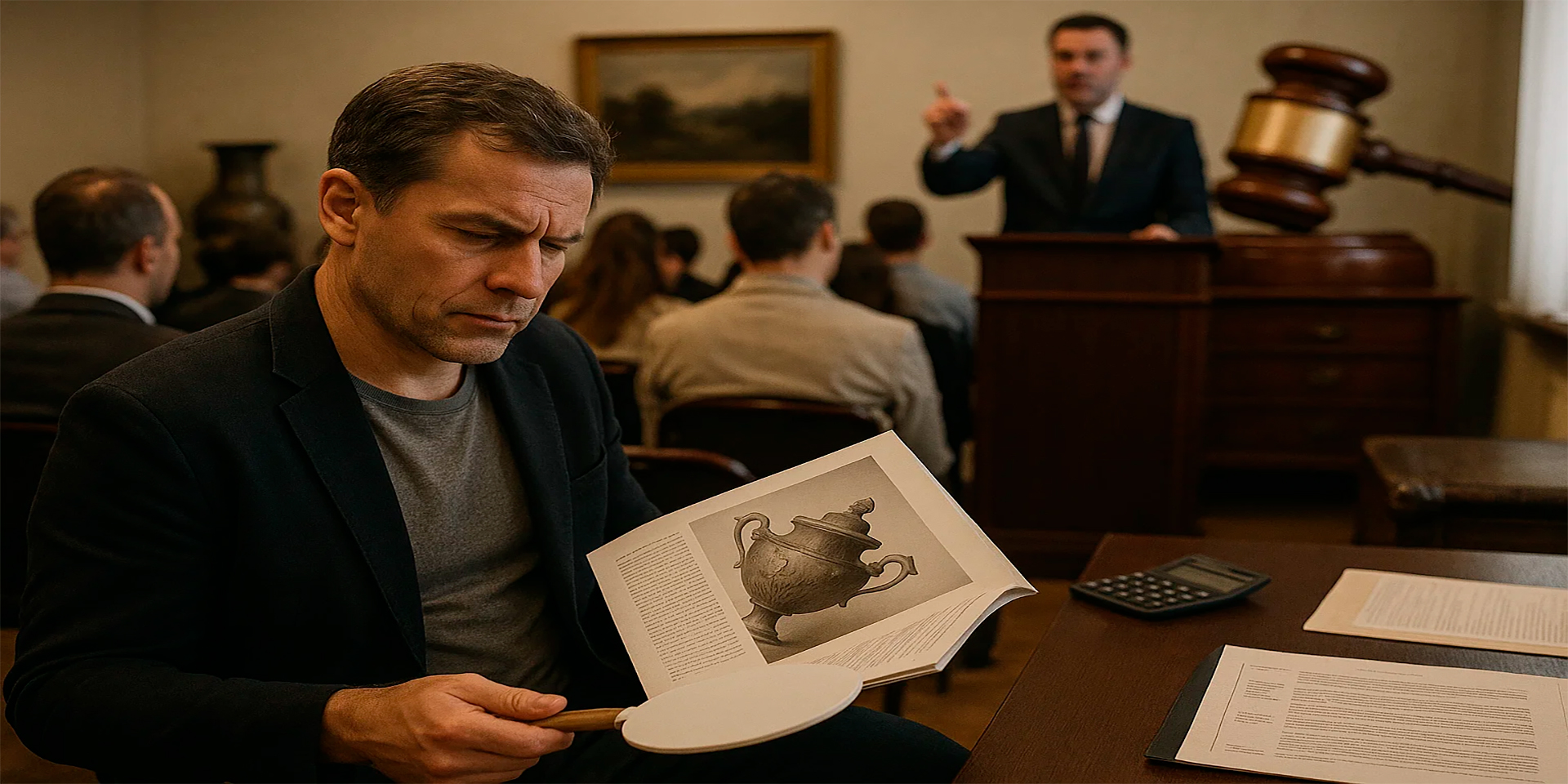December 01, 2025
Smart Auction Bidding: What To Consider Before Raising Your Hand

What To Pay Attention To Before Bidding At Auctions
Auctions are dynamic, unpredictable environments where fortunes can be made—or quickly lost. The thrill of competition and the possibility of securing valuable assets at favorable prices draw in both experienced investors and first-time participants. But beneath the excitement lies a complex system with its own risks, rules, and hidden pitfalls. Entering an auction unprepared can lead to costly mistakes, while careful planning transforms the process into a strategic advantage. Understanding what to evaluate beforehand—market value, bidding competition, financing, and hidden costs—gives you the edge needed to bid confidently and responsibly.
Understanding Market Value Before You Bid
The first and most essential step before bidding is determining the market value of the item or asset. Auctions often create an illusion of scarcity and urgency, pushing bidders to pay more than an item is worth. Without clear knowledge of actual market conditions, participants risk overspending. Market value can be determined through research, recent sales comparisons, and expert appraisals. For property auctions, reviewing neighborhood prices and structural conditions is vital. For collectibles, examining provenance, authenticity, and demand trends is equally important. Knowing the fair price sets your maximum bid ceiling, preventing emotions from taking control. Ultimately, bidders who anchor themselves in market realities stand a far better chance of walking away with true value instead of inflated costs.
Comparative Research
Analyze recent sales data of similar assets. Look at price ranges achieved under normal conditions, not just during heated auctions. This benchmark ensures your expectations remain realistic.
Expert Evaluations
When possible, consult certified appraisers or industry specialists. Their assessments provide clarity, especially for unique or rare assets where comparable sales may be limited.
Recognizing Competition Dynamics
Competition at auctions can significantly affect outcomes. Some bidders enter with deep pockets and strong strategies, while others arrive unprepared but drive prices up due to excitement. Understanding the competition is crucial for positioning yourself effectively. Observe how bidders behave in past auctions hosted by the same organizer. Some participants may consistently outbid to secure dominance, while others withdraw early. Recognizing patterns allows you to adjust tactics accordingly. Equally important is gauging demand. If a particular item type has high interest, expect aggressive bidding and be prepared to step aside if prices exceed your ceiling. Being aware of competition dynamics helps you remain disciplined, avoid reckless bids, and seize opportunities when rivals hesitate.
Types Of Bidders
Some competitors are professionals seeking profit, others are collectors driven by passion, and some are newcomers motivated by the experience itself. Knowing who you are up against shapes how you bid.
Psychological Factors
Auction rooms often trigger competitive instincts. Recognizing that adrenaline can influence decisions helps you stay rational. Discipline ensures you do not confuse winning with actually profiting.

Financing And Budget Considerations
Before bidding, participants must ensure they have financing in place. Auctions typically require quick payment or significant deposits shortly after winning. Without liquidity or pre-approved financing, a winning bid can quickly become a liability. Planning your budget means accounting not only for the hammer price but also for premiums, fees, and taxes. Having a firm limit avoids impulsive overbidding. Financial discipline also signals professionalism to auction organizers, improving your credibility. Whether bidding on real estate, equipment, or art, entering with a clear financial plan protects you from the stress of scrambling to arrange funds post-auction.
Pre-Approved Loans
For larger purchases, securing pre-approval from lenders ensures you can meet immediate obligations. Lenders familiar with auction dynamics often provide specialized financing products.
Setting A Hard Ceiling
Always establish a maximum bid based on financial capability, not on desire. Sticking to this limit prevents regret and ensures the acquisition aligns with your broader financial strategy.
Hidden Costs That Influence Final Price
One of the most overlooked aspects of auctions is the presence of hidden costs. The hammer price rarely represents the final expense. Buyers often face premiums charged by the auction house, administrative fees, legal costs, and taxes. For real estate, there may be repair costs, unpaid utility bills, or liens attached to the property. For art or collectibles, authentication, shipping, and insurance costs quickly add up. These hidden expenses can increase the total outlay by 10% to 30% or more. Smart bidders factor in all potential costs when calculating maximum bids. Ignoring them can turn what seems like a bargain into an expensive mistake, undermining the very purpose of attending an auction.
Auction Premiums
Most auction houses charge a buyer’s premium on top of the hammer price, often ranging between 5% and 20%. This surcharge must be included in your calculations.
Post-Purchase Expenses
Transport, storage, repairs, and insurance all contribute to final costs. Estimating these beforehand avoids unpleasant financial surprises after the excitement fades.
| Factor To Consider | Potential Impact On Final Cost | Examples |
|---|---|---|
| Buyer’s Premium | +5% to +20% of hammer price | Charged by auction houses as standard practice |
| Taxes & Legal Fees | Varies by jurisdiction | Property transfer tax, registration fees |
| Repairs & Maintenance | Can exceed 15% of asset value | Fixing structural damage in real estate |
| Logistics | Significant for bulky or fragile items | Shipping art, transporting heavy equipment |
Due Diligence And Legal Checks
Due diligence is indispensable before committing to any bid. Auction assets may carry hidden legal obligations, disputed ownership, or unresolved claims. For real estate, checking land registry records and ensuring no liens exist is critical. For art and antiques, provenance and authenticity must be verified. Bidders who neglect legal research expose themselves to costly disputes and potential loss of investment. Many auction houses disclaim responsibility for such issues, making it the buyer’s obligation to investigate thoroughly. Preparing legal groundwork not only prevents unpleasant surprises but also enhances confidence during bidding. When you know exactly what you are purchasing, you can bid with greater precision and less hesitation.
Ownership Verification
Confirm that the seller has legitimate ownership and the right to sell. Lack of proper documentation can invalidate the transaction or drag you into legal battles.
Regulatory Compliance
For certain categories like property or vehicles, compliance with safety, zoning, or environmental regulations must be confirmed. Failure to comply could restrict usage or require costly modifications.
Strategic Planning For Auction Success
Success at auctions depends as much on preparation as on bidding skills. Planning means setting a budget, researching assets, monitoring competitors, and defining exit strategies. It also involves anticipating scenarios where walking away is the best choice. Having a plan prevents emotion-driven decisions and allows you to remain calm under pressure. Strategy extends to the actual bidding process—knowing when to start low, when to raise incrementally, and when to stay silent. Many seasoned bidders win not because they outspend competitors but because they outthink them. In auctions, information and discipline are worth more than deep pockets.
Psychological Readiness
Preparing mentally helps you resist pressure. Auctions can create high-stakes atmospheres, but keeping focus on your strategy ensures consistent decision-making even when competition intensifies.
Exit Strategies
Know in advance under which conditions you will stop bidding. Having an exit plan avoids last-minute rationalizations that lead to overspending and regret.
The Conclusion
Bidding at auctions is as much about discipline as it is about opportunity. Market value research, competition analysis, financial preparation, and attention to hidden costs all shape outcomes. Due diligence ensures legal safety, while strategic planning protects against emotional mistakes. Auctions can unlock significant opportunities, but only for those who prepare with rigor. Treat the process as both financial and psychological, balancing ambition with caution. By paying attention to these factors, you turn the unpredictable nature of auctions into a manageable, even profitable, endeavor.







